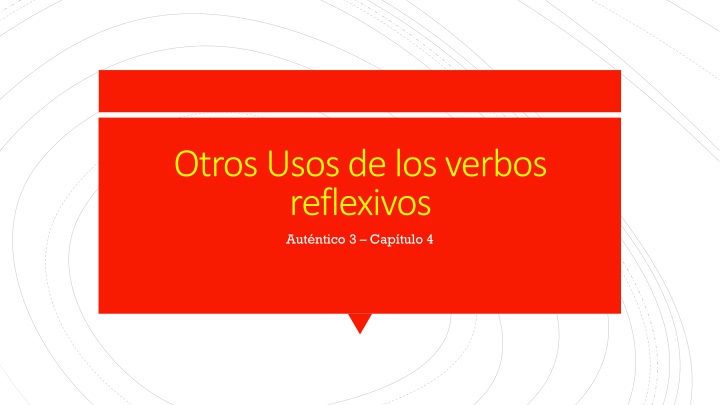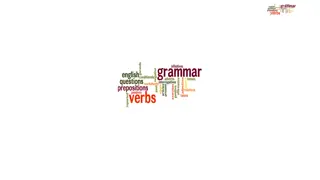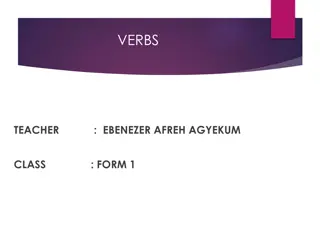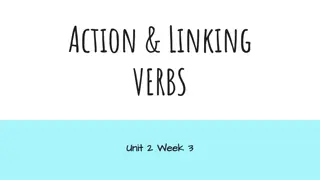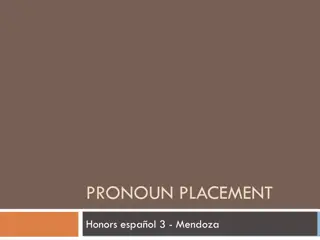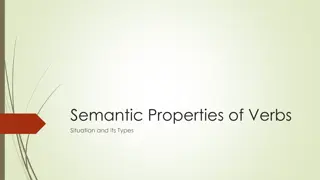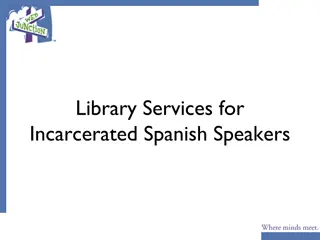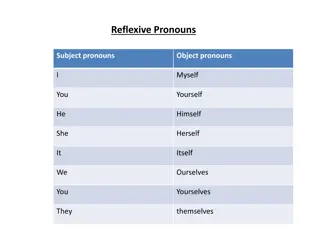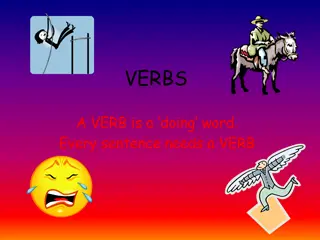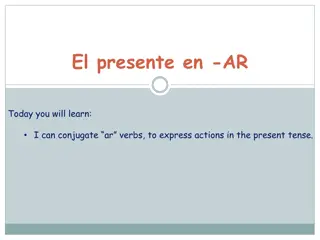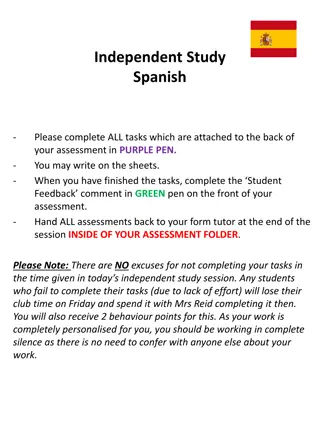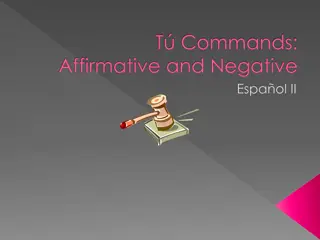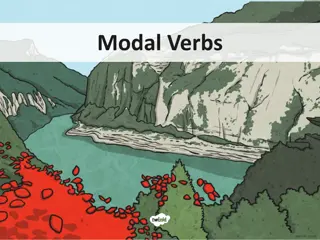Reflexive Verbs in Spanish
Reflexive verbs in Spanish indicate when the subject receives the action of the verb. Learn about different types of reflexive verbs, their usage in daily routines, describing states, changes of state, and verbs with both reflexive and non-reflexive forms. Explore examples and understand the distinctions between reflexive and non-reflexive verbs in Spanish.
Download Presentation

Please find below an Image/Link to download the presentation.
The content on the website is provided AS IS for your information and personal use only. It may not be sold, licensed, or shared on other websites without obtaining consent from the author.If you encounter any issues during the download, it is possible that the publisher has removed the file from their server.
You are allowed to download the files provided on this website for personal or commercial use, subject to the condition that they are used lawfully. All files are the property of their respective owners.
The content on the website is provided AS IS for your information and personal use only. It may not be sold, licensed, or shared on other websites without obtaining consent from the author.
E N D
Presentation Transcript
OtrosUsosde losverbos reflexivos Aut ntico 3 Cap tulo 4
A verb is reflexive in Spanish when the subject receives the action of the verb. In English, this is implied by the endings Los verbos reflexivos self and selves. In Spanish the reflexive pronouns are me, te, se, nos, os, se.
Many reflexive verbs in Spanish are used to describe daily routine actions. These verbs include Los verbos reflexivos despertarse (to wake up), ducharse (to take a shower), peinarse (to comb oneself), vestirse (to get dressed) and acostarse (to go to bed).
Other reflexive verbs are used to describe a physical or emotional state. Verbs of this type include: Divertirse (to enjoy oneself), Sentirse (to feel an emotion). Los verbos reflexivos
Some reflexive verbs describe a change of state and they carry the added meaning of to get or to become Los verbos reflexivos Me enoj . = I became angry (got mad). Se puso muy nervioso. = He became very nervous.
There are some verbs that have both a reflexive and a non-reflexive form. They have a different meaning when used reflexively. Los verbos reflexivos
Non-reflexive forms: esconder = to hide something Ir = to go dormir = to sleep Parecer = to seem quedar -= to be located Quitar = to take away volver = to return Reflexive vs non- reflexive Perder = to lose poner = to put Reflexive forms: esconderse = to hide (self) Irse = to leave dormirse = to fall asleep Parecerse a = to look like quedarse = to stay Quitarse = to take off volverse = to become Perderse = to get lost ponerse = to become
Other verbs such as: Darse cuenta de (to realize), Quejarse (to complain), Portarse bien (to behave) Are ALWAYS reflexive. Reflexive vs non- reflexive
Placement of reflexive pronouns with commands and the present participle follow the same placement rules as direct or indirect object pronouns (previously learned). Placement of reflexive pronouns
Los sbados todos 1. _____ temprano. Mi hermano y mi papa 2. _________ con sus amigos a jugar al f tbol. Por la tarde, si hace buen tiempo, nadie quiere 3. _____ en casa. Todos vamos al parque a correr. A veces, despu s de correr, yo 4. ______ un poco pero nunca 5. _____. Lo pasamos muy bien. Pr ctica En Familia quedarse quejarse levantarse cansarse irse
1.Nos levantamos/se levantan 2.Se van 3.Quedarse 4.Me canso 5.Me quejo Las Las Respuestas Respuestas
